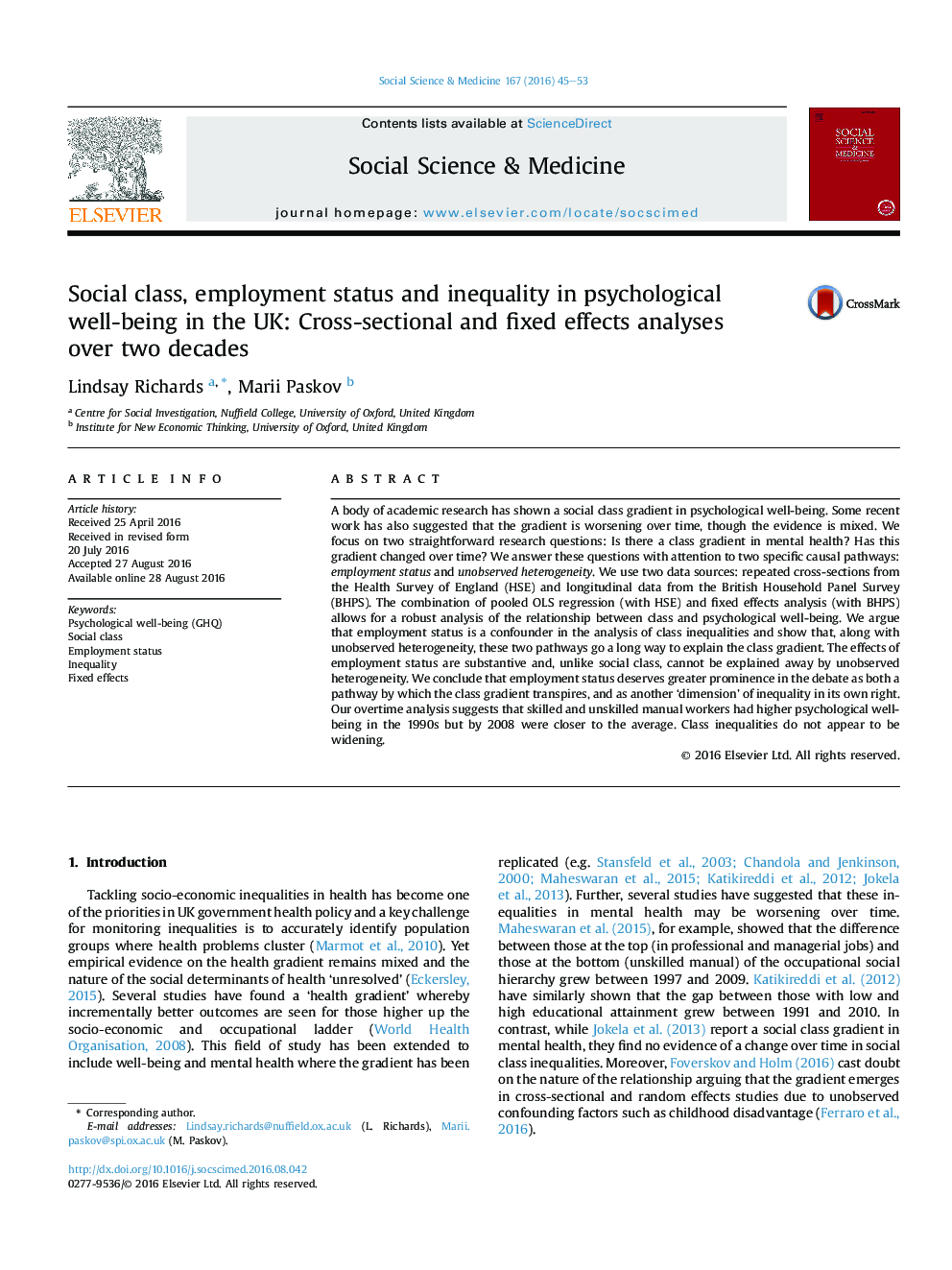| کد مقاله | کد نشریه | سال انتشار | مقاله انگلیسی | نسخه تمام متن |
|---|---|---|---|---|
| 5046945 | 1476002 | 2016 | 9 صفحه PDF | دانلود رایگان |
- Employment status better explains psychological well-being than social class.
- The psychological well-being of unskilled workers started high but fell 1991-2008.
- Class inequalities in psychological well-being are not widening.
A body of academic research has shown a social class gradient in psychological well-being. Some recent work has also suggested that the gradient is worsening over time, though the evidence is mixed. We focus on two straightforward research questions: Is there a class gradient in mental health? Has this gradient changed over time? We answer these questions with attention to two specific causal pathways: employment status and unobserved heterogeneity. We use two data sources: repeated cross-sections from the Health Survey of England (HSE) and longitudinal data from the British Household Panel Survey (BHPS). The combination of pooled OLS regression (with HSE) and fixed effects analysis (with BHPS) allows for a robust analysis of the relationship between class and psychological well-being. We argue that employment status is a confounder in the analysis of class inequalities and show that, along with unobserved heterogeneity, these two pathways go a long way to explain the class gradient. The effects of employment status are substantive and, unlike social class, cannot be explained away by unobserved heterogeneity. We conclude that employment status deserves greater prominence in the debate as both a pathway by which the class gradient transpires, and as another 'dimension' of inequality in its own right. Our overtime analysis suggests that skilled and unskilled manual workers had higher psychological well-being in the 1990s but by 2008 were closer to the average. Class inequalities do not appear to be widening.
Journal: Social Science & Medicine - Volume 167, October 2016, Pages 45-53
